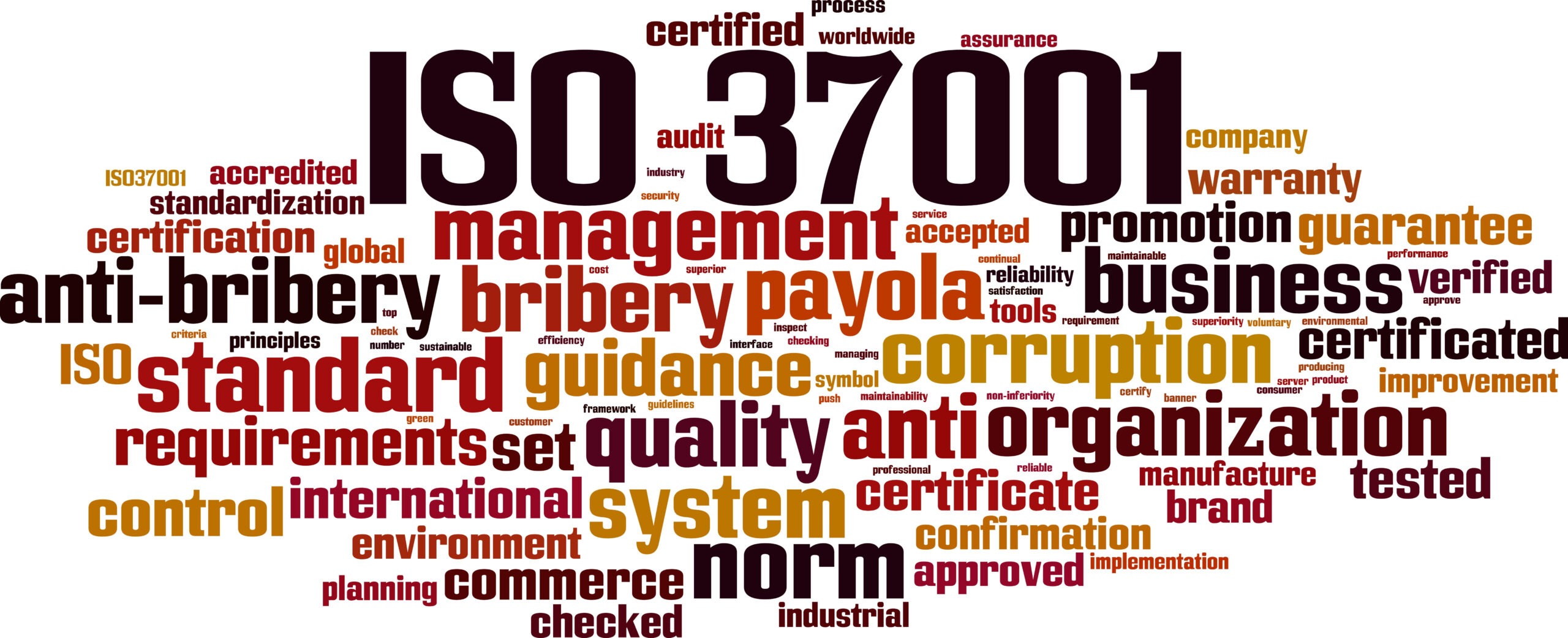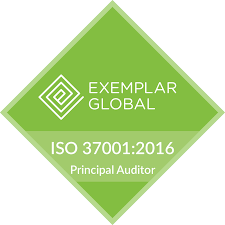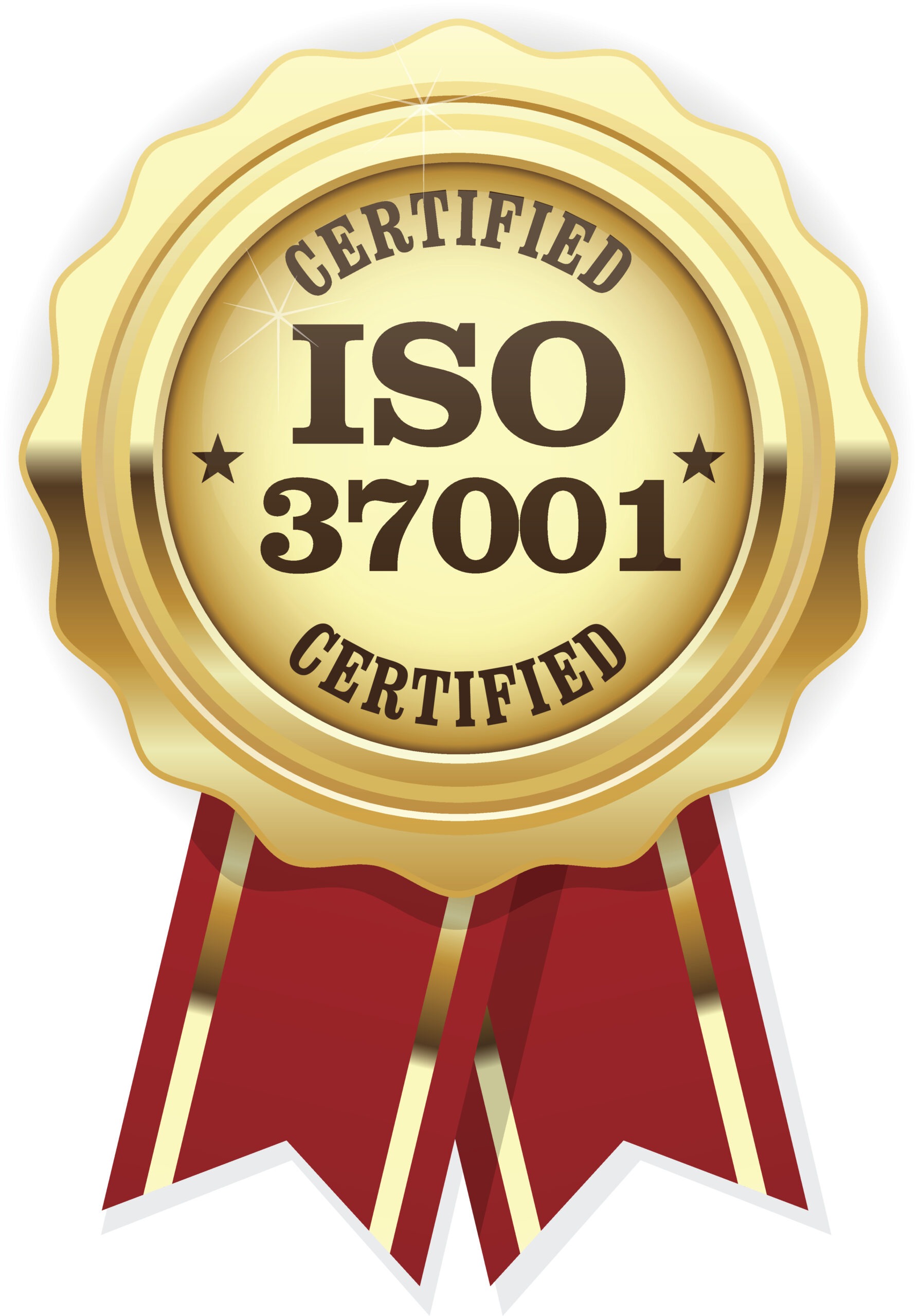ISO 37001 Lead Auditor

ISO 37001 is an international standard for anti-bribery management systems.
It provides a framework for organizations to establish, implement, maintain, and continually improve anti-bribery policies
and practices. The primary goal of ISO 37001 is to help organizations prevent bribery, comply with anti-bribery laws and regulations, and promote an ethical business culture.
Key aspects of ISO ISO 37001 include:
- Anti-Bribery Policy: Organizations are required to develop and maintain an anti-bribery policy that reflects their commitment to preventing bribery and outlines the organization’s approach to managing bribery risks.
- Leadership and Commitment: Top management plays a crucial role in providing leadership and commitment to the anti-bribery management system. Their involvement is essential in creating a culture of integrity.
- Risk Assessment: Organizations must conduct a risk assessment to identify and evaluate bribery risks associated with their operations, business partners, and geographic locations.
- Due Diligence on Business Partners: ISO 37001 emphasizes the importance of conducting due diligence on business partners, including suppliers, agents, and intermediaries, to ensure they adhere to anti-bribery principles.
- Training and Awareness: Employees and relevant stakeholders should be educated and made aware of the organization’s anti-bribery policies, procedures, and expectations.
- Operational Controls: Procedures and processes are established to manage and control operations with bribery risks. These controls may include financial controls, procurement processes, and reporting mechanisms.
- Monitoring and Measurement: Regular monitoring and measurement of anti-bribery performance are essential to track progress and identify areas for improvement.
- Incident Response: Organizations need to develop procedures for reporting and investigating bribery incidents and taking appropriate corrective actions.
- Documentation: ISO 37001 requires the maintenance of documentation, including the anti-bribery policy, procedures, records, and reports.
- Continuous Improvement: Organizations are encouraged to continually improve their anti-bribery performance and the effectiveness of their anti-bribery management system.
- Certification: Organizations can seek certification from accredited certification bodies to demonstrate their compliance with ISO 37001. Certification provides external validation of the organization’s anti-bribery efforts.


We are ISO 37001 Lead Auditor
Certified Exemplar Global, Certificate Number: ABMS/LA/ACFM
We play a role in evaluating and improving an organization’s anti-bribery practices.
We help organizations meet ISO 37001 standards, prevent bribery, reduce bribery risks, and protect their reputation and integrity.
We are approved by certification bodies, consulting firms.
We work within internal audit teams in organizations seeking ISO 37001 certification or aiming to enhance their anti-bribery management system.


Achieving ISO 37001 certification involves a structured process, which typically includes the following steps:
- Commitment: Top management must commit to implementing and maintaining an anti-bribery management system.
- Anti-Bribery Policy: Develop and communicate an anti-bribery policy that reflects the organization’s commitment to preventing bribery.
- Risk Assessment: Identify and assess bribery risks within the organization’s operations and activities.
- Due Diligence: Establish procedures for conducting due diligence on business partners and third parties.
- Training and Awareness: Provide training to employees and raise awareness about anti-bribery practices.
- Operational Controls: Implement controls and procedures to manage bribery risks.
- Monitoring and Measurement: Establish processes for monitoring and measuring anti-bribery performance.
- Incident Reporting and Investigation: Develop procedures for reporting and investigating bribery incidents.
- Internal Audit: Conduct internal audits to assess the effectiveness of the anti-bribery management system.
- Management Review: Top management should review the anti-bribery management system to ensure its continuing suitability, adequacy, and effectiveness.
- Certification Audit: Engage a certification body to conduct an independent audit to assess compliance with ISO 37001.
- Certification: If the audit is successful, your organization can achieve ISO 37001 certification.
ISO 37001 certification is valuable for organizations seeking to demonstrate their commitment to ethical business practices and anti-bribery efforts.
It can enhance an organization’s reputation and provide assurance to stakeholders, including customers, partners, and regulators.
To maintain certification, organizations must continue to improve their anti-bribery performance and comply with the standard’s requirements.
